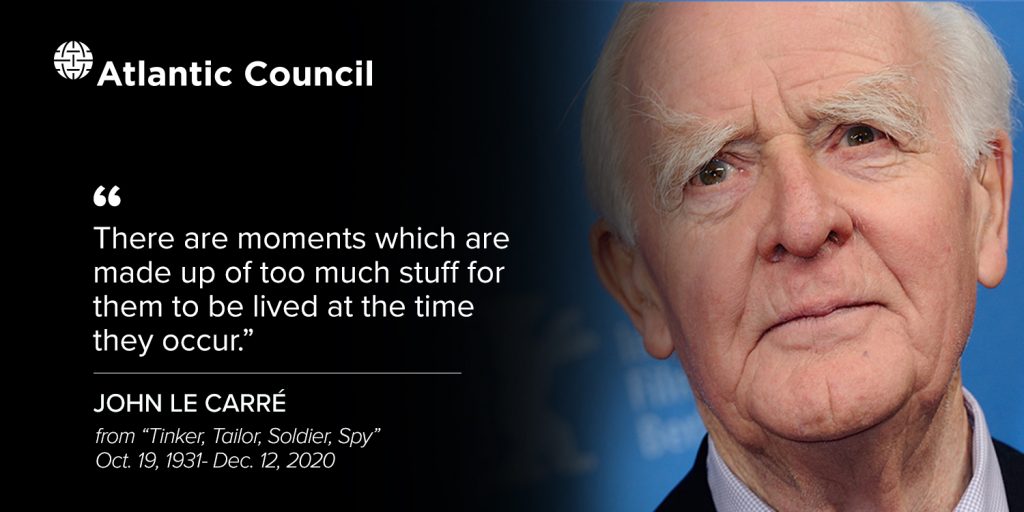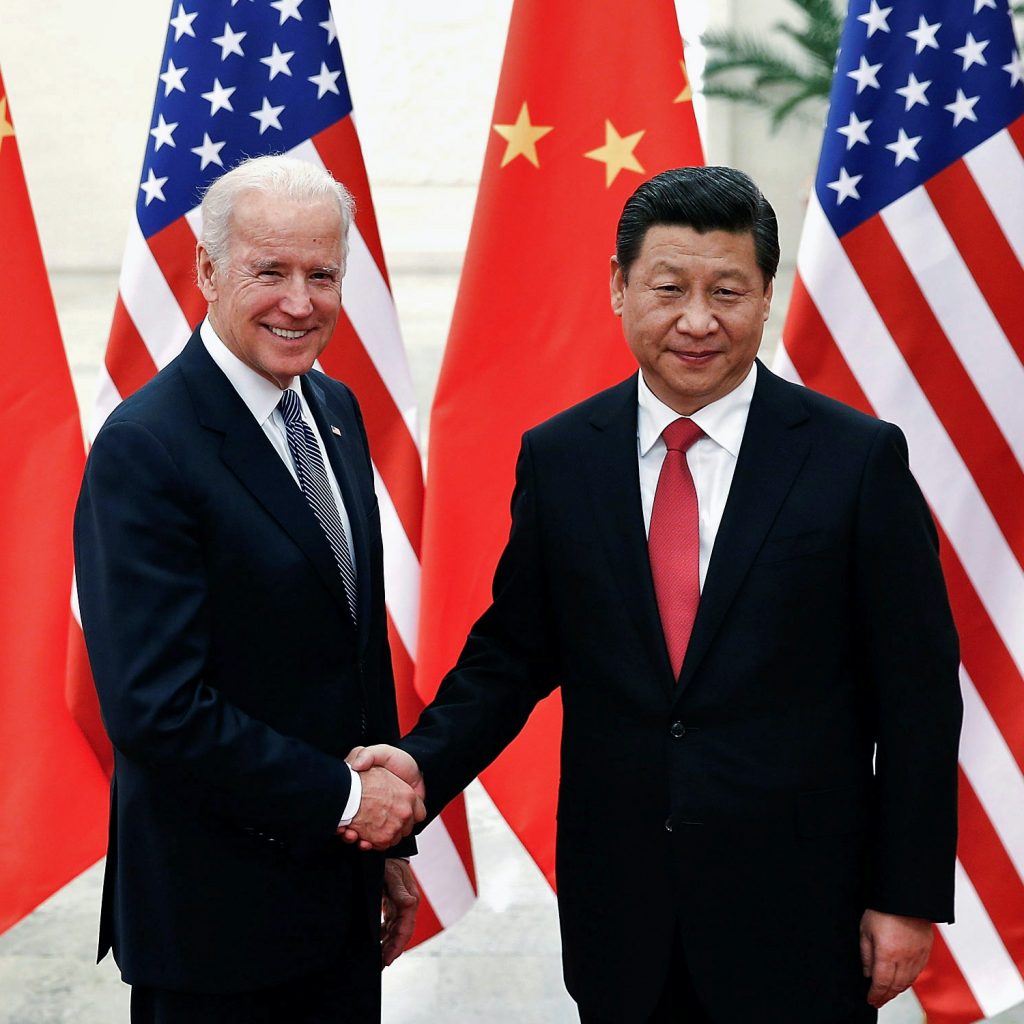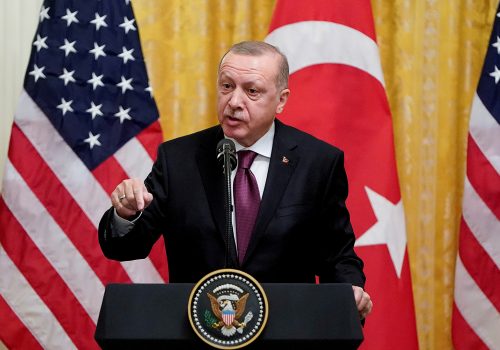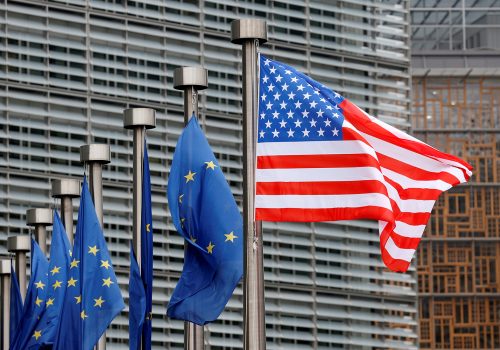Chinese negotiators surprised their European Union counterparts this week with key market-access concessions—following long months of intransigence—that could allow the two parties to reach an agreement on a historic investment deal by year’s end.
Though EU officials haven’t yet revealed the details, one senior EU diplomat said the agreement goes beyond anything Beijing has offered any foreign partner previously, both in the level of market access and legal and other guarantees.
EU officials aren’t naïve about the deal’s historic timing or political significance. It would come shortly after Americans elected Joe Biden in early November, following a campaign during which he pledged to rally allies in Europe and Asia to work in common cause to counteract the unfair practices of China’s authoritarian capitalist system.
In Brussels, Beijing’s rush to close the investment agreement follows the European Commission’s proposal on December 2 to President-elect Biden for “a new transatlantic agenda for global change” that has at its heart nothing less than the ambition of bringing together Europe and the United States as a global alliance based on shared values and history.
EU officials I reached on Friday said they were torn between the opportunity to close one of the best investment agreements ever offered by China and the desire to seize the early days of the Biden administration to dramatically improve transatlantic relations. Should the EU close the deal with China, they are likely to argue to the Biden team that the concessions they gained from Beijing can also be applied to any future US agreements with China.
That said, President Xi’s underlying message to President-elect Biden, paraphrasing the Rolling Stones’ hit 1974 single, is that “Time Waits for No One.”
Get the Inflection Points newsletter
Subscribe to Frederick Kempe’s weekly Inflection Points column, which focuses on the global challenges facing the United States and how to best address them.
Xi isn’t willing to hit the pause button to provide President-elect Biden time and space to assemble his China team, reach out to allies, and frame his strategy. He won’t do so on trade and investment, nor will he do so in his efforts to crack down on political dissent at home. He is moving rapidly to gain greater self-sufficiency in developing key technologies, particularly semiconductors. And he will head off any efforts that would impede his ambition to unify Taiwan with the mainland during his leadership.
It’s clear that President Xi regards 2021, the centenary of the Chinese Communist Party, as perhaps the most important year since he came to power in 2013. He regards the decade ahead as decisive.
Nothing could have made President Xi’s personal ambitions clearer than the Fifth Plenum of the Central Chinese Committee, which concluded on October 29, just five days ahead of the US election.
“Judging by the Plenum’s outcome, Xi’s political ambition to remain in power for the next 15 years looks increasingly secure,” said Kevin Rudd, the former Australian prime minister, in a must-read speech as president of the Asia Society Policy Institute. Rudd sees the 2020s as the “make-or-break decade for the future of Chinese and American power.”
President Xi’s rush to close the EU investment deal is just one among many elements of his evolving, pre-emptive approach toward the United States in general and President-elect Biden more specifically, with elements that range from trade initiatives around the world to escalating actions against pro-democracy activists in Hong Kong and real or perceived dissidents at home.
Seen most charitably, President Xi is hoping to incentivize the Biden administration to more cooperatively negotiate similar agreements with Beijing. It had been a long-desired Chinese goal, before the decline of relations during the Trump administration, to achieve a so-called BIT—or Bilateral Investment Treaty—with the United States akin to what is being negotiated with the EU.
Seen less generously, Xi is boxing in the Biden administration long before the January 20 inauguration by locking its closest democratic allies into investment and trade agreements to which Washington isn’t party. Regarding human-rights issues—including this week’s arrest of a Bloomberg journalist and the jailing of newspaper founder Jimmy Lai and other Hong Kong democracy activists—he’s signaling that today’s China will resist President-elect Biden’s expected efforts to highlight human-rights issues.
President Xi is not only leveraging the long-standing commercial attractions of his country’s nearly 1.4 billion consumers. He’s also profiting from China’s significant success at getting COVID-19 under control. That, in turn, will allow China to be the world’s only major economy to post growth this year, at some 1.5 to 2 percent, with a shot at double-digit growth next year.
The news from Brussels follows last month’s announcement that 15 member countries of the Association of Southeast Asian Nations and regional partners—including China, but not the United States—had signed the Regional Comprehensive Economic Partnership, or RCEP, one of the largest free-trade agreements in history. It is the first time China has come together with US allies South Korea and Japan in such an agreement.
Beyond that, President Xi has expressed interest in joining the Comprehensive and Progressive Agreement for Trans-Pacific Partnership. The agreement was negotiated with the United States during the Obama administration, but President Trump pulled out of the talks, long before their 2018 successful conclusion, as one of his first acts in office.
For all his determination to reinvigorate relations with allies, President-elect Biden has said trade agreements won’t be a priority. There remains an insufficient constituency for them among Republican or Democratic lawmakers.
As always, it would be mistaken to underestimate China’s challenges, and they are many.
Among them are doubts about the Chinese economic model, particularly as President Xi tightens his controls over the private sector, including the recent blocking of the ANT initial public offering. China’s return to growth this year has been driven mostly by the state.
There are increasing signs that President Xi’s most ambitious international effort, the Belt and Road Initiative, is in trouble. Chinese officials are quietly reigning in its ambitions—and they face pressure to reschedule or forgive debts owed by poorer country partners.
It’s also not clear whether national self-sufficiency efforts will close remaining technology gaps, particularly when it comes to semiconductors. The Trump administration heightened tensions this week, putting China’s biggest chip maker and drone maker on an export blacklist, requiring US companies to get licenses to sell to them.
Whatever problems President Xi may have, he emerges from 2020 stronger than anyone anticipated when the coronavirus broke out in Wuhan late last year. In President-elect Biden’s inaugural year, it may be President Xi’s actions that are most worth watching.
This article originally appeared on CNBC.com
Frederick Kempe is president and chief executive officer of the Atlantic Council. You can follow him on Twitter @FredKempe.

THE WEEK’S TOP READS
The selection includes a major Atlantic Council paper by Mathew Kroenig and Jeffrey Cimmino providing a logical, workable strategy for the US and its allies to manage China’s rise; the best piece I’ve read yet, by James Crabtree in Noema magazine, on Xi’s controversial “dual-circulation” economic policies that rethink globalization; and Dan Yergin’s rich look at history to understand the most dangerous waterway on earth, the South China Sea.
The Atlantic Council’s Matthew J. Burrows and Robert A. Manning provide their annual review of the ten greatest risks for the year ahead—but, mercifully, this year they have also added the ten top opportunities.
Rounding out this week’s choices, the Washington Post’s David Ignatius, a master novelist himself, provides a rich reflection on the life and writing of John Le Carré, who passed away last Sunday. Le Carré is also Inflection Points’ Person of the Week.
#1. THIS CHINA STRATEGY COULD WORK
Global strategy 2021: An allied strategy for China
Matthew Kroenig and Jeffrey Cimmino / ATLANTIC COUNCIL
The Atlantic Council’s Matthew Kroenig and Jeffrey Cimmino, working alongside expert collaborators from ten of the world’s leading democracies, produced this week’s “must-read.” Their Global strategy 2021: An allied strategy for China, proposes what strategist and author Joe Nye called “a logical and actionable strategy for addressing the China challenge.”
As Nye outlines in his compelling foreword, the authors “argue that the desired endpoint of the strategy is not everlasting competition or the overthrow of the Chinese Communist Party, but rather to convince Chinese leaders that their interests are better served by cooperating within, rather than challenging, a rules-based international system.”
Best of all, the points in their paper are actionable. It calls for strengthening like-minded allies and partners and their rules-based global system; it outlines how to use that strengthened base to defend against malign Chinese behavior; and it looks at often-underestimated opportunities to engage China from a position of strength on matters such as climate, the global economy, public health and nonproliferation.
Pass this one to any policymaker you know! Read More →
#2. PRESIDENT XI’S ‘DUAL CIRCULATION’ STRATEGY
China’s Radical New Vision of Globalization
James Crabtree / NOEMA MAGAZINE
China watchers this year have been studying a new term, “dual circulation,” that describes President Xi Jinping’s radical new approach to globalization, based on the assumption that the US and its allies will try to deny China the technology it needs to build “a modern socialist country.”
This week’s potential investment agreement with the EU notwithstanding, James Crabtree in Noema magazine writes on President Xi’s shift in thinking from globalization as a given to a likely new struggle with the US and the West that could “accelerate China’s decoupling from the West while also increasing the importance of trading links forged with other parts of the world.”
“Put more bluntly,” he writes, “while the world was distracted by the drama of the US presidential election, Xi quietly unveiled an economic strategy fit for a new Cold War. Both for China and for globalization itself, the results are likely to be profound.” Read More →
#3. THE WORLD’S MOST DANGEROUS WATERWAY
The World’s Most Important Body of Water
Daniel Yergin / THE ATLANTIC
Pulitzer Prize winner Dan Yergin delves into history as a guide to understanding today’s dangerous tensions between the United States and China in the South China Sea.
He calls it “the most important body of water for the world economy— through it passes at least one-third of global trade. It is also the most dangerous body of water in the world, the place where the militaries of the United States and China could most easily collide.”
Yergin tells his story through “four ghosts, long-departed men from centuries past…”
They include China’s greatest seafarer; the Dutch lawyer who penned the legal brief against Chinese claims; the American admiral whose philosophies offered a foundation for both US Navy and Chinese maritime expansionism; and the British writer who argued the costs of conflict were too high, even for the potential victor.
This is rich reading. Read More →
#4. WHAT TO WORRY ABOUT (AND HOPE FOR) IN 2021
The top ten risks and opportunities for 2021
Matthew J. Burrows and Robert A. Manning/ ATLANTIC COUNCIL
Drawing on their many years of combined experience at the US National Intelligence Council, the authors took their annual stab on behalf of the Atlantic Council at the top risks for the year ahead.
They’ve added a twist this time, attaching probability to each scenario. You can look at their assessment of the chances of a stifled Biden presidency, a deepening COVID-19 crisis, a new global financial crisis, intensified Iran-US confrontation, or a US-China clash over Taiwan.
Mercifully, they’ve added a top ten look at opportunities this year. Here you’ll be able to gauge the chance for a WTO rebirth, new momentum for multilateralism, improvements in US-Russian relations, a Manhattan Project for battery storage, and an expanded and deepened Sunni Arab-Israel alliance. Read More →
#5. LE CARRÉ’S LEGACY
John le Carré didn’t just invent the characters in the foreground of the spy world. He designed the entire set.
David Ignatius / WASHINGTON POST
These weekly picks have overfilled their quota of David Ignatius’ columns for this year.
But how could I not include Ignatius’ reflection on the great spy novelist John Le Carré, who passed away last Sunday? After all, Ignatius himself is a master storyteller with eleven novels under his belt, including Body of Lies, which director Ridley Scott adapted into a film.
“To say that le Carré invented the modern spy novel doesn’t do justice to his achievement,” writes Ignatius. “His fiction was so powerful that in the ‘secret world,’ as he always liked to call it, his imaginary names began to take over for real ones.”
Ignatius closes his rich piece with a conclusion one can only wish Le Carré could have read before he passed. He writes that the author’s “genius was that his reimaginings of people and events have proved more memorable than the real things. A handful of authors have similarly defined the periods in which they lived—Dickens, Tolstoy, Balzac, Flaubert—creators of unforgettable characters and the very air they seem to breathe.”
Some will question Ignatius’ decision to put Le Carré in that league, “but I suspect that a hundred years from now, readers will make that judgment,” concludes Ignatius. Read More →
QUOTE OF THE WEEK

Atlantic Council top reads
Image: Chinese President Xi Jinping shakes hands with then-US Vice President Joe Biden in 2013. REUTERS/Lintao Zhang/Pool/File Photo



